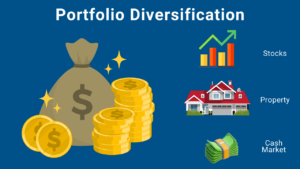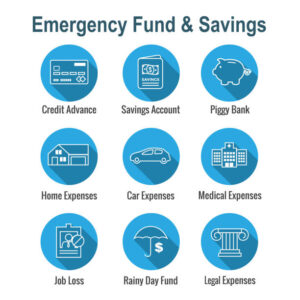10 Things to Do After Retirement to Stay Financially Secure
Retirement is often seen as a well-earned reward after decades of hard work. However, it also ushers in a new chapter filled with financial challenges and opportunities. According to the U.S. Social Security Administration, Social Security benefits replace only about 40% of a worker’s pre-retirement income on average, making personal savings and smart financial decisions critical to maintaining your lifestyle after retirement. The question is, how can you stay financially secure and enjoy your golden years without money worries?
In this comprehensive guide, we’ll explore 10 essential things to do after retirement to stay financially secure. From managing your budget to investing wisely, this post is packed with practical tips, expert quotes, and research-backed strategies to help you thrive financially in retirement. Ready to take control of your retirement finances and secure your future? Let’s dive in!

—
1. Review Your Spending and Income Plan Regularly

Why Regular Reviews Matter in Retirement
Your financial situation after retirement is not static. Changes in health, inflation, unexpected expenses, or shifts in income can affect your financial security. A study by the Employee Benefit Research Institute (EBRI) found that retirees who regularly monitor their finances are more likely to avoid running out of money.
How to Conduct a Financial Review
- Track your monthly expenses: Use budgeting tools or apps to understand where your money goes.
- Compare income vs. expenses: Ensure your income sources (pensions, Social Security, investments) cover your spending.
- Adjust for inflation: Remember, inflation averages about 3% annually, meaning your expenses will rise over time.
- Plan for large expenses: Include healthcare, home repairs, travel, or family support in your budget.
“A regular financial review is the cornerstone of a secure retirement. It helps retirees adapt to changing circumstances and avoid unpleasant surprises,”
Says Jane Bryant Quinn, a renowned personal finance expert.
Action Steps:
– Schedule an annual financial review.
– Use spreadsheets or apps like Mint or YNAB to track your finances.
– Consult a financial advisor if needed.
—
2. Find New Sources of Income
Why Supplementing Income Is Important
Relying solely on savings and Social Security can be risky. According to a 2023 report from the National Institute on Retirement Security, nearly 45% of retirees face financial shortfalls. Supplementing your income can provide a cushion and improve your quality of life..7 Profitable Side Hustles that pays!
Ways to Generate Additional Income After Retirement
- Part-time work: Many retirees find fulfilling part-time jobs in consulting, tutoring, or retail.
- Freelancing: Use your skills in writing, graphic design, or bookkeeping to earn money from home.
- Renting assets: Rent out a spare room or property on platforms like Airbnb.
- Starting a small business: Turn hobbies like crafting or baking into income streams.
- Dividend income: Invest in dividend-paying stocks or funds for regular payouts.
Expert Insight:
“Retirement income diversification is key. Don’t put all your eggs in one basket,” advises financial planner Michael Kitces.
Action Steps:
– Identify skills or hobbies that can generate income.
– Research local or online job opportunities.
– Explore passive income options like rental properties or dividends.
—
3. Get Out of Debt Before or Soon After Retirement

The Impact of Debt on Retirement Security
Carrying debt into retirement can severely limit your financial flexibility. The Federal Reserve reports that Americans aged 65+ hold an average of $50,000 in debt, including mortgages, credit cards, and personal loans..How to Pay Off Debts Faster: 8 Simple Tips
Why Paying Off Debt Matters
– Reduces monthly expenses.
– Frees up cash flow for essentials and emergencies.
– Improves credit score, helpful if borrowing is needed.
– Lowers financial stress.
Strategies to Eliminate Debt
– Prioritize high-interest debt like credit cards.
– Consider downsizing or refinancing to lower mortgage payments.
– Use part of your retirement savings cautiously to pay off debt.
– Avoid accumulating new debt during retirement.
Action Steps:
– List all debts with interest rates.
– Create a payoff plan starting with the highest interest debts.
– Avoid new loans or credit card usage.
—
4. Invest Wisely and Diversify Your Portfolio

Why Investment Still Matters After Retirement
Retirement doesn’t mean you should stop investing. Inflation and longevity risk mean your money needs to grow to maintain purchasing power. According to a 2024 study by Vanguard, a balanced portfolio of stocks and bonds can help retirees sustain withdrawals for 30+ years..How to Diversify Your Investment Portfolio: 7 Essential Techniques
How to Invest Safely in Retirement
- Shift to conservative investments: Bonds, dividend stocks, and annuities reduce volatility.
- Diversify across asset classes: Don’t rely solely on stocks or cash.
- Consider inflation-protected securities: Treasury Inflation-Protected Securities (TIPS) guard against inflation.
- Avoid high-risk, speculative investments: Protect your nest egg from market shocks.
Expert Quote:
“Investing in retirement is about preservation and income generation, not speculation,” says Suze Orman, personal finance author.
Action Steps:
– Review your portfolio annually.
– Consult a financial advisor for asset allocation.
– Consider low-cost index funds or ETFs.
—
5. Maximize Social Security Benefits
Understanding Social Security Timing
When you claim Social Security affects your monthly benefit. Claiming at the earliest age (62) reduces benefits, while delaying up to age 70 increases them by about 8% per year.
Strategies to Maximize Benefits
– Delay claiming benefits if possible.
– Coordinate with your spouse for optimal claiming strategies.
– Understand how working during retirement affects benefits.
Research Insight:
The Social Security Administration states that delaying benefits from 62 to 70 can increase monthly payments by up to 76%.
Action Steps:
– Use the SSA’s online calculators to estimate benefits.
– Consult with a Social Security expert.
– Plan your retirement income around your claiming age.
—
6. Downsize or Relocate to Reduce Expenses
How Housing Costs Affect Retirement Finances
Housing is often the largest expense in retirement. The National Council on Aging reports that housing and utilities can consume up to 30% of a retiree’s income.
Benefits of Downsizing or Relocating
– Lower mortgage or rent payments.
– Reduced maintenance and utility costs.
– Access to communities with senior-friendly amenities.
– Potential to free up equity for investments or emergencies.
Considerations When Moving
– Cost of living differences.
– Proximity to healthcare and family.
– Tax implications.
– Lifestyle preferences.
Action Steps:
– Evaluate your current housing costs.
– Research affordable retirement-friendly locations.
– Consult a real estate advisor for selling and buying.
—
7. Prioritize Your Health to Avoid High Medical Costs
The Financial Impact of Healthcare in Retirement
Healthcare expenses are a significant burden. Fidelity estimates a 65-year-old couple will need approximately $315,000 for healthcare in retirement.
Tips to Manage Healthcare Costs
– Maintain a healthy lifestyle—exercise, balanced diet, regular checkups.
– Choose Medicare plans carefully; consider supplemental insurance.
– Use preventive care to avoid costly treatments.
– Shop around for prescriptions and medical services.
Expert Advice:
“Good health is your best financial asset in retirement,” says Dr. Andrew Weil, integrative medicine expert.
Action Steps:
– Schedule annual health screenings.
– Review Medicare and supplemental insurance plans annually.
– Budget for out-of-pocket medical expenses.
—
8. Build and Maintain an Emergency Fund

Why an Emergency Fund Is Essential
Unexpected expenses can derail retirement plans. An emergency fund covering 3-6 months of living expenses provides peace of mind and financial flexibility..10 Creative Ways to Fund Your Emergency Savings
How to Build Your Emergency Fund
– Start small and build gradually.
– Keep funds in a liquid, accessible account.
– Avoid using retirement accounts for emergencies unless absolutely necessary.
Action Steps:
– Calculate your monthly essential expenses.
– Set a target emergency fund amount.
– Automate transfers to a savings account.
—
9. Organize Your Finances and Create a Budget

The Importance of Budgeting in Retirement
A clear budget helps you control spending, plan for future expenses, and avoid running out of money..How to Create a Budget That Works for You
How to Create an Effective Retirement Budget
– List all income sources.
– Track fixed and variable expenses.
– Include irregular expenses like travel or gifts.
– Review and adjust monthly.
Tools and Resources
– Budgeting apps like EveryDollar or Personal Capital.ppp00pp0000p00p0pppp0p
– Spreadsheets tailored for retirement.
– Professional financial planning services.
Action Steps:
– Create a detailed monthly budget.
– Monitor spending weekly.
– Adjust based on actual expenses and income changes.
—
10. Stay Socially and Mentally Active

How Social Engagement Supports Financial Security
While not a direct financial action, staying socially and mentally active reduces healthcare costs, improves mental health, and can open new income opportunities.
Ways to Stay Engaged
– Volunteer in your community.
– Join clubs or groups.
– Take classes or learn new skills.
– Mentor younger generations.
Research Insight:
Studies from Harvard’s School of Public Health show that social engagement can reduce the risk of cognitive decline and depression, which often lead to costly medical care.
Action Steps:
– Identify local groups or clubs.
– Volunteer for causes you care about.
– Pursue hobbies that challenge your mind.
—
FAQs
How much money do I need to retire comfortably?
A: Financial experts recommend saving 10-12 times your annual pre-retirement income. However, this varies based on lifestyle, health, and location.
Can I work after retirement without affecting my Social Security benefits?
A: Yes, but if you claim benefits before full retirement age and earn over certain limits, your benefits may be temporarily reduced.
Should I pay off my mortgage before retiring?
A: Generally, yes. Eliminating mortgage payments reduces monthly expenses and financial stress.
How can I protect my retirement savings from inflation?
A: Investing in inflation-protected securities, dividend stocks, and maintaining a diversified portfolio helps combat inflation.
What is the best way to avoid scams targeting retirees?
A: Be skeptical of high-return promises, never share personal information unsolicited, and consult trusted financial advisors.
—
Retirement is a time to enjoy the fruits of your labor, but it requires careful financial planning and ongoing management. By reviewing your spending, finding new income sources, eliminating debt, investing wisely, maximizing Social Security, downsizing, prioritizing health, building an emergency fund, budgeting, and staying active, you can stay financially secure and enjoy a fulfilling retirement.
Remember, retirement is not the end of financial planning—it’s a new phase that demands attention and smart decisions. Start implementing these strategies today to safeguard your financial future and live your retirement years with confidence and peace of mind.
—
Sources & Further Reading:
– [Social Security Administration](https://www.ssa.gov)
– [Employee Benefit Research Institute](https://www.ebri.com)
– [National Institute on Retirement (https://www.nirsonline.org)
– [Fidelity Retirement Health Care Cost Estimate](https://www.fidelity.com/viewpoints/retirement/retirement-health-care-costs)
– [Vanguard Retirement Research] (https://investor.vanguard.com/retirement)
– [Harvard School of Public Health] H(https://www.hsph.harvard.edu)
—










uguf52
wrtzuhmfwyuxjsjpwevmgiszjfmwes